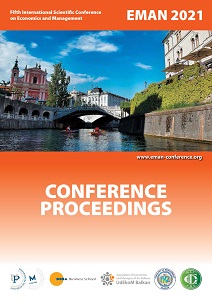ORGANIZATIONAL RESILIENCE – PARADIGM FOR CORPORATE SUSTAINABILITY DURING COVID-19 IN THE PRIVATE SECTOR OF NORTH MACEDONIA
ORGANIZATIONAL RESILIENCE – PARADIGM FOR CORPORATE SUSTAINABILITY DURING COVID-19 IN THE PRIVATE SECTOR OF NORTH MACEDONIA
Author(s): Kate Trajkova, Nikola Sterjovski, Marko Andonov
Subject(s): Social Sciences, Economy
Published by: Udruženje ekonomista i menadžera Balkana
Summary/Abstract: The archetype for optimal functionality of modern organizations in unstable and disruptive conditions, known as the new normality, since the outbreak of Covid-19 has become one of the latest paradigms for contemporary management. The challenge arises in the process of creating organizational competences for effective responses to the influences of Covid-19 and securing sustainability reflected as organizational resilience. This paper aims to present the theoretical contours and conceptualization of organizational resilience. The analysis of the theoretical background describes affective, cognitive, relational, and structural mechanisms which are distinct constitutive dimensions of the concept. The research agenda provides answers to the questions regarding the strength of the antecedents through a frame that covers three dimensions: Situational awareness, Adaptive Capability, Individual participation and Engagement. Methods: based on the structural dimensions, for the purposes of this paper, quantitative research was conducted, with a questionnaire on a sample of 138 respondents from companies with domestic and foreign capital located in North Macedonia. The statistical analysis of the data is presented through a resilience analysis grid (RAG). Results: The paper displays an approach to defining the corporative resilient capacities; a framework for identification of a resilient profile in different levels of conceptualization (RAG); an identification of the strength of the potential determinants. Conclusion: The appliance of the determinant model provides answers to the research questions for the potential strengths of resilience capacity determinants in the companies in North Macedonia. The resilience analysis grid (RAG) visualizes the strength of the potential determinants and secures directions for safety management, especially in continuous conditions of long lasting economic shocks.
Book: EMAN 2021 / 5 – Economics & Management: How to Cope with Disrupted Times - CONFERENCE PROCEEDINGS
- Page Range: 253-262
- Page Count: 10
- Publication Year: 2021
- Language: English
- Content File-PDF

